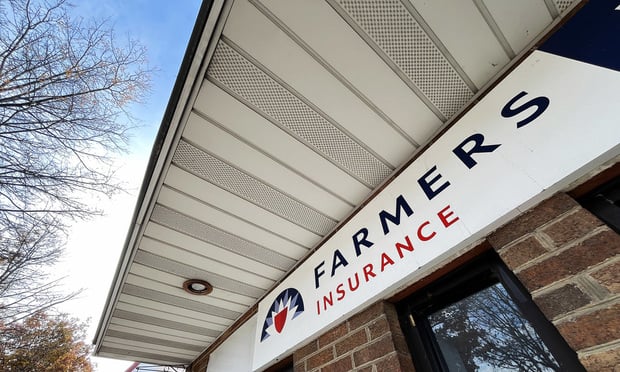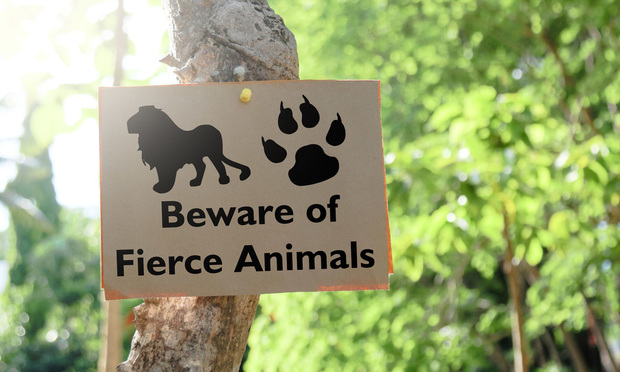Jesse Lee manufactured stylish college uniforms for women athletes at a time when their teams mattered a lot less. His pioneering company, Sports Belle, was the first choice of many college teams for years. Then larger companies such as Nike and Adidas elbowed into the business and snatched account after account from Lee as women’s teams blossomed in stature.
Sports Belle declined and Lee’s plant in Knoxville, Tenn., was growing increasingly idle. He had little future left in sports apparel. His final run at profits was a desperate money grab — Lee burned down his plant for $4.7 million worth of insurance money.
Related: 5 cases of arson gone bad
The outsized firestorm destroyed the building and nearly killed fire fighters who struggled to contain the flames. Employees also lost their jobs and a small company was run out of business.
Lee shines a harsh spotlight on arson crimes by failing entrepreneurs. He also bucks the trend. Conclusive data are evasive although structural arsons of all kinds continue declining nationally. Today, only 4% involve businesses (homes are by far the largest arson source) says the FBI.
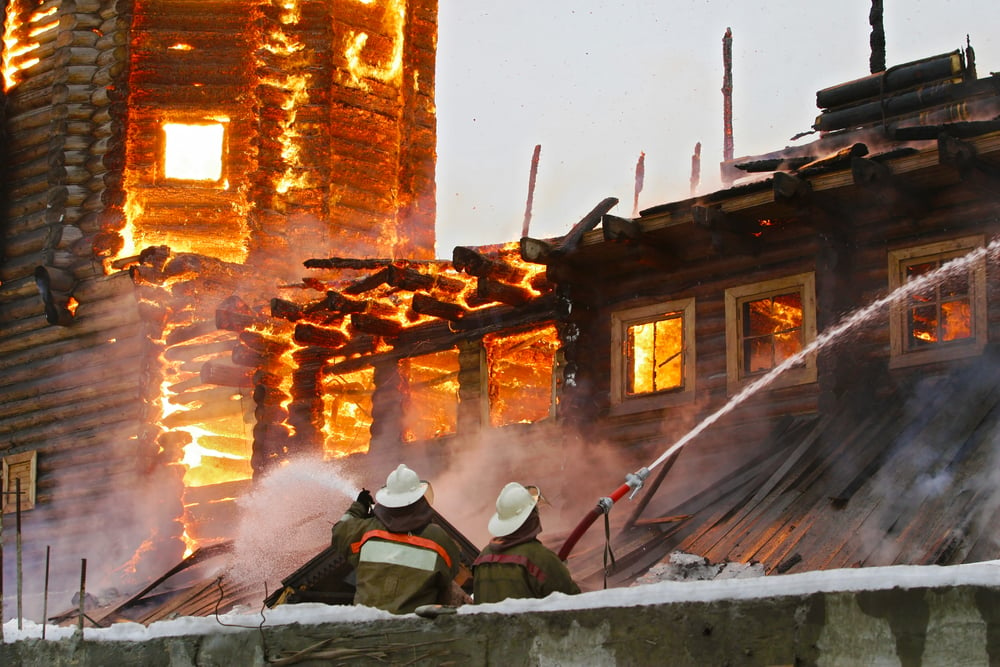
Photo: Vasily Smirnov/Shutterstock
Burning for business
Still, business arsons for profit may be a greater financial drain and public-safety threat than the downward data arc suggests. Arson overall remains one of the hardest major crimes to solve despite advances in arson science. This crime has a “clearance” rate of only about 20% according to the FBI.
Perhaps more importantly, up to 75% of arsons overall go unreported reveals an investigation of major-city fires by the Scripps Howard News Service. Lurking in that finding may be many unreported “scorchings” of businesses for insurance. Much of the $1.5. billion insurers paid out for arsons overall — including the business arsons for profit — thus remains uncontested. Deaths also should be treated as homicides.
Related: Anatomy of an arson case
Most business owners also operate in highly competitive marketplaces. Odds of failure are high, thus compounding the pressure to cheat with insurance arsons. Generally, about nine of 10 startups fail and only about half of startup companies stay open past four years. At least 75% of venture-backed startups fizzle.
Most bankrupt entrepreneurs get back up and try again. Yet a small minority like Lee can’t stand the heat so they create their own: They seek the easy path back to solvency by incinerating their businesses for insurance payouts.
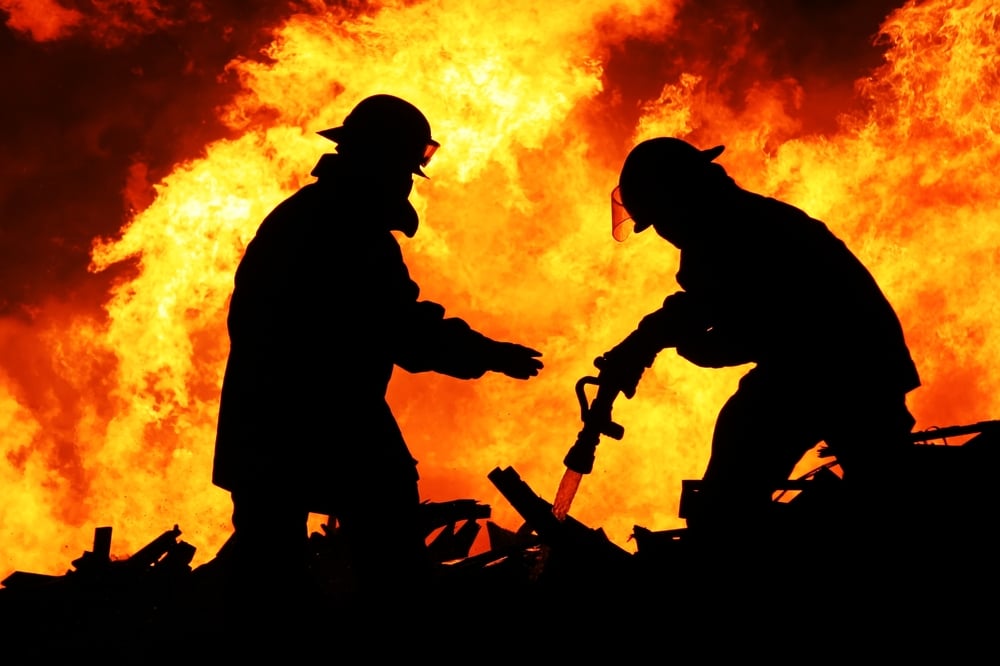
Photo: Four Oaks/Shutterstock
Sprinklers disabled
Lee hired a drug addict named Joseph Beason to burn down Sports Belle. He promised Beason $10,000 and as much copper wiring as he could extract from the building. Beason and a crony disabled the sprinklers and alarms. They set several small fires that roared so fast that the pair barely escaped. Sports uniforms piled in the warehouse quickly ignited, enlarging a blaze that engulfed the building.
More than 50 firefighters battled the fire for 22 hours. They were Lee’s opposition: He had refused their recent request to develop a fire-fighting “pre-plan” to combat a blaze in the large plant.
The firefighters were forced to devise ad-hoc pathways through the gooey black smoke and flesh-searing heat. They cut holes into the roof to let trapped heat and smoke escape. This is normally one of the most dangerous maneuvers. The fire-weakened structure could have collapsed underneath them. Firefighters have died or been injured in other blazes when walls, floors or roofs have crumbled.
Workers lost jobs
Lee’s once-thriving plant was ruined. Nearly 50 employees lost their jobs and about half were Lee’s staff. A small business also worked inside the plant printing names and logos on the uniforms. Lee’s own policy covered Parks Athletics, he assured the company’s owner.
Yet Parks never saw a dime of the $4.7 million of insurance money. His little company went bankrupt, Parks died and his wife, Linda, lost the house — leaving her a homeless widow.
The insurance money made Lee a multi-millionaire, giving him a comfortable lifestyle. Dogged investigators spent more than six years trying to pinpoint the fire’s cause and motive. Lee even accused the fire department of lying that he’d denied access to his building for the pre-plan.
The big break came when Beason, hoping for leniency, agreed to wear a wire and let Lee spill the plot. The evidence convicted Lee, who received six-and-a-half years in federal prison in June 2015.
Sadly, he never considered the price his daughter, Melissa, would pay. She suffers from multiple sclerosis, is largely bedridden and in pain with her muscles shrinking. Lee was her sole caregiver after his wife died of cancer. Lee’s jail term left the fragile young woman frightened and her future bleak without her father and caregiver.
“... he is now the only person I can turn to who knows how I’m doing without me having to say a word to. Because he’s just there, and I need that,” she wrote the court memo in asking for a lenient sentence. “And I fear what might happen to me during the next 5-6 years. I am short on able-bodied family, and with my father gone, all I will have is myself and my dog. And that is terrifying to me.”
As for Beason, he ended up with 38 months in jail despite his cooperation. He thought he’d earned probation despite setting the largest and costliest arson blaze in Knox County history.
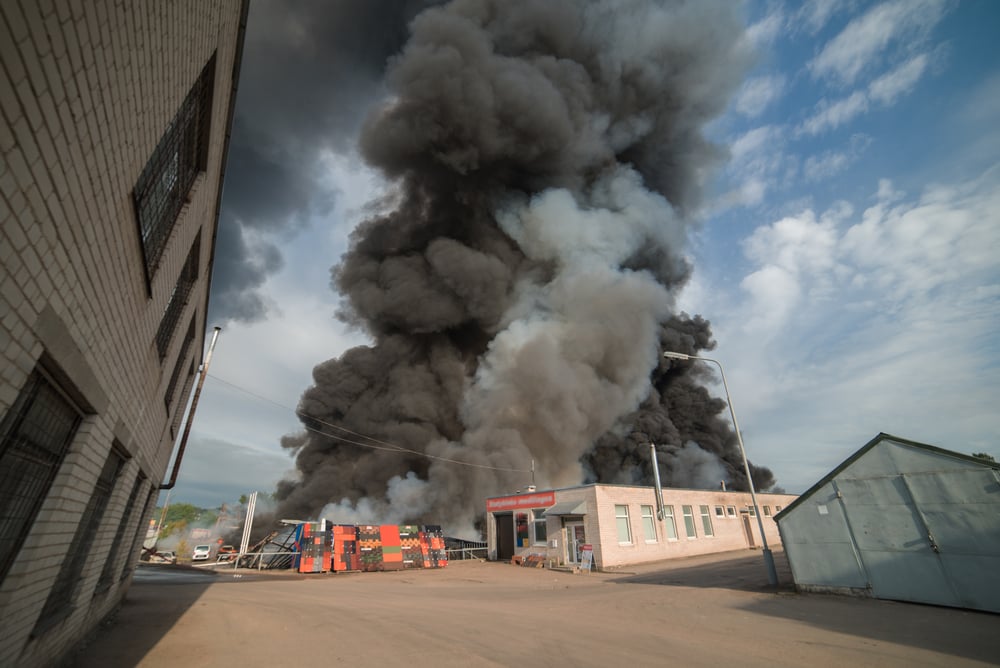
Photo: krivinis/Shutterstock
Sofa store failed
Other fire-prone entrepreneurs have sought insurance payouts when they could not make enough money honestly.
Consider Jay Aneja. His Roanoke, Va., sofa store was going belly-up. He bribed a henchman with $3,000 to burn down the place for the insurance money. The blaze caused $407,000 in damage to his store. Four nearby businesses incurred $300,000 in smoke damage. His insurer refused the claim.
One of Aneja’s victims was entrepreneur Dwight Hanna. He owned Caution Flag, a racing collectibles shop that lost numerous one-of-a-kind items. One was a rare driver’s suit worn and signed by racing great Dale Earnhardt. Hanna also was stuck with $80,000 in damage that insurance didn’t cover. Aneja received 84 months in federal prison in June 2015.
Dirty laundry
Another entrepreneur named Alexandros Yfantidis came to the U.S. from Greece and started a laundry service. Best Textiles became his worst nightmare.
The Macomb County, Michigan man’s business went bankrupt, a victim of market forces. Insurance money was his only way out Yfantidis figured. So he opened a two-inch-wide gas line inside the building then lit a candle in the path of the fumes.
The 5,000-square-foot laundry plant blew up as if struck by heat-seeking missiles. Residents felt the shuddering blast for miles around. It caused at least $1 million in damages to nearby homes and businesses. Some nearby companies were permanently ruined and never reopened. Yfantidis admitted guilt and awaits federal sentencing.
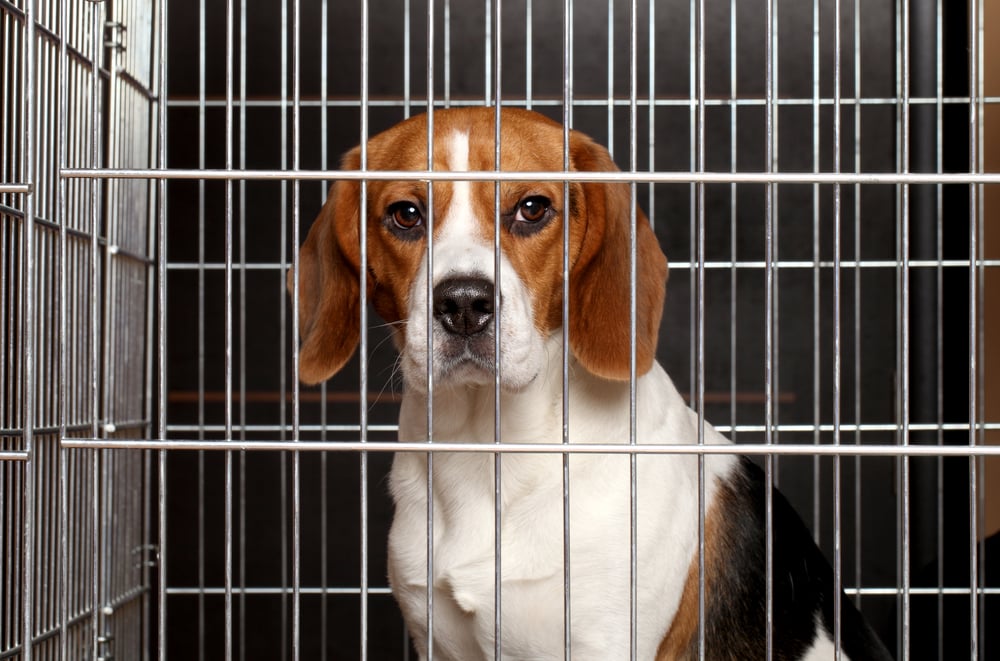
Photo: Jagodka/Shutterstock
Puppies barely escape
Caged puppies were Gloria Lee’s pathway to profits as she struggled to escape large debts piling on top of her and her husband. The Las Vegas woman thought she had a clear way to solvency: Burn down her Prince and Princess Pet Boutique; figuring 28 puppies burned alive would increase her insurance take.
She and her dreadlocked boyfriend with whom she was having an affair glided through the pet store. They sprayed gasoline then set fire to stacks of newspapers they’d piled up for kindling.
Cringing in their cages were the frightened pooches — Yorkshire terriers, Malteses, Chihuahuas, pugs, an English bulldog, beagle, dachshund, a miniature poodle and miniature schnauzer.
But Lee overlooked her own security cameras and the cameras caught nearly every move. Lee also forgot her sprinkler system. It dutifully shut down the flames and saved the puppies from a ghastly death. Lee received up to 14 years in prison.
Insurance fraud is not the answer
Entrepreneurs form the backbone of America’s economy. Our nation depends on their creativity and job-creating power. For most entrepreneurs, the energy that compelled them to start their businesses provides the inner reserves to keep going when market forces squeeze their finances past the breaking point.
Yet when moral and financial bankruptcy collide, some entrepreneurs use matches, accelerant and insurance to escape destitution.
Downed by a financial squeeze, spirited business owners keep climbing back up and competing. Yet when they try to incinerate their failing businesses for insurance money, there’s no competing with tenacious investigators and prosecutors.
Dennis Jay is the executive director of the Coalition Against Insurance Fraud.
Want to continue reading?
Become a Free PropertyCasualty360 Digital Reader
Your access to unlimited PropertyCasualty360 content isn’t changing.
Once you are an ALM digital member, you’ll receive:
- Breaking insurance news and analysis, on-site and via our newsletters and custom alerts
- Weekly Insurance Speak podcast featuring exclusive interviews with industry leaders
- Educational webcasts, white papers, and ebooks from industry thought leaders
- Critical converage of the employee benefits and financial advisory markets on our other ALM sites, BenefitsPRO and ThinkAdvisor
Already have an account? Sign In Now
© 2024 ALM Global, LLC, All Rights Reserved. Request academic re-use from www.copyright.com. All other uses, submit a request to [email protected]. For more information visit Asset & Logo Licensing.



